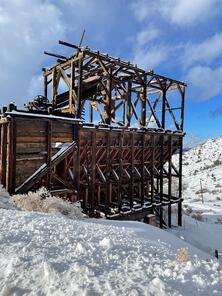The California Financing Law prohibits any person from engaging in the business of a finance lender without first obtaining a license from the Commissioner of Financial Protection & Innovation. Cal. Fin. Code § 22100(a). The CFL defines "Finance Lender" to include "any person who is engaged in the business of making consumer loans or making commercial loans". Cal. Fin. Code § 22009. The business of making consumer loans or commercial loans may include lending money and taking, in the name of the lender, or in any other name, in whole or in part, as security for a loan, any contract or obligation involving the forfeiture of rights in or to personal property, the use and possession of which property is retained by other than the mortgagee or lender, or any lien on, assignment of, or power of attorney relative to wages, salary, earnings, income, or commission. Id. The CFL, however, does not define the term "engage in the business" and this has created some uncertainty about whether the making of an occasional loan constitutes engaging in the business.
"Parting is such sweet sorrow . . .".
Until this year, some occasional lenders have relied on the de minimis exemption found in former Financial Code Section 22050.5. That statute provided that the CFL does not apply to does any person who makes one loan in a 12-month period if that loan is a commercial loan as defined in Financial Code Section 22502. The statute included a "sunset" provision that stated that the exemption would remain in effect only until January 1, 2022. Although legislation ( SB 577) was introduced last year to remove this sunset provision, it was not enacted.
Some persons may nonetheless be able to rely upon the slightly more generous exemption in Financial Code Section 22050(e) that makes the CFL inapplicable to any person who makes five or fewer loans in a 12-month period, these loans are commercial loans as defined in Section 22502. However, this exemption add a significant additional condition: the loans must incidental to the business of the person relying upon the exemption.
Happy New Year!
I spent New Year's eve and day in Pioche, Nevada. To paraphrase Hamlet, the air bit shrewdly, it was cold (8° when I woke). Fortunately, the town has quieted down since its founding over a century ago. Reportedly, 75 men were buried in the town cemetery before the first person to die of natural causes. For stories about Pioche's violent beginnings, see Leo Schafer, Law & Disorder in Pioche (2009).
Below is a photo of the arial tramway above Pioche. The tramway carried silver ore to the mill from treasure hill.

The content of this article is intended to provide a general guide to the subject matter. Specialist advice should be sought about your specific circumstances.
